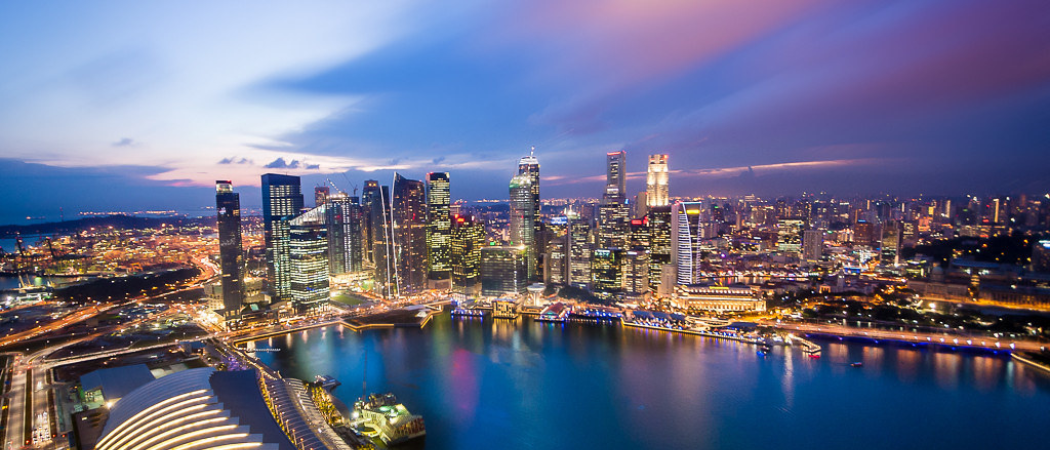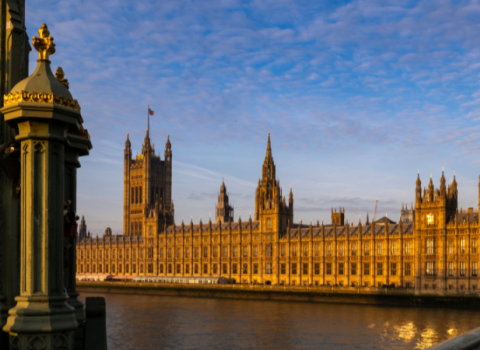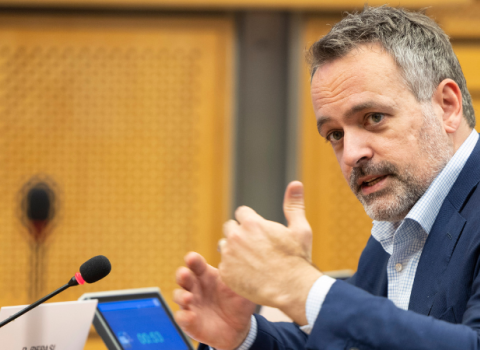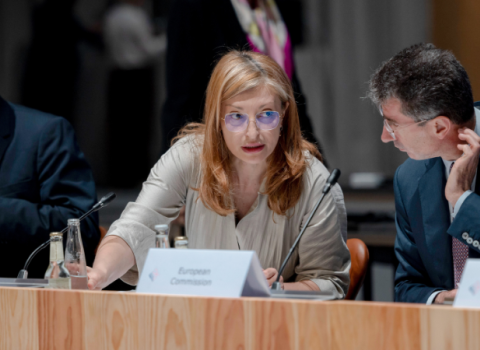Amnesty International calls defence of the country’s record ‘shameful’ and ‘disappointing’

Singapore's skyline. Photo credits: Christopher Chan / Flickr
The European Commission has talked up Singapore’s record on democracy and human rights to member states to justify the city state’s inclusion in the EU’s Horizon Europe research and innovation programme.
In a document classified as ‘sensitive’ that has been seen by Science|Business, the Commission downplays concerns over restrictions on freedom of expression, legal brakes on activism, and the fact that Singapore has been ruled by the same party since independence in 1965.
But human rights groups have condemned the assessment. “The EC has tried to sidestep the human rights situation in Singapore despite admitting there are clear concerns,” a spokesperson for Amnesty International said. “It remains very disappointing that the EC has reached a conclusion that Singapore respects human rights.”
In addition to offending human rights campaigners, the Commission’s assessment also flies in the face of the EU’s own diplomatic service, which has repeatedly condemned executions by Singapore.
Singapore is currently in negotiations to associate to Horizon Europe, which would give the researchers based in the country equal access to some parts of the research programme.
The Commission has opened the programme up to countries outside Europe, and in the aftermath of Russia’s invasion of Ukraine, pushed to build an alliance of free, democratic countries working together on science and technology. So far, New Zealand, Canada and South Korea have agreed to associate.
Association has increasingly been wielded by the EU as a geopolitical tool, with the UK blocked for several years over higher level disputes about Northern Ireland. Horizon Europe talks are also part of a package of measures to boost relations with Egypt, which the EU wants to help stem migration to the bloc.
In this context, Singapore would make for another East Asian research ally as the EU becomes more cautious about collaborating with China. It also imposed sanctions on Russia following Moscow’s invasion of Ukraine, making one of the most geopolitically aligned states in the region.
But authoritarian Singapore could be a controversial addition, because Horizon Europe’s rules require associated countries outside the European region to “have respect of human rights, backed by democratic institutions”.
The Commission has said that Singapore doesn’t run afoul of these rules, but has refused to publicly release its full assessment and it did not respond to a request for comment from Science|Business.
The justification
The Commission’s full justification for Singaporean association seen by Science|Business was presented to the EU Council in July this year. In it, the Commission argues that the country meets democracy and human rights criteria.
“Singapore is committed to a rules-based open market economy, including fair and equitable dealing with intellectual property rights, respect of human rights, backed by democratic institutions,” it says.
The Commission points to the Freedom in the World 2024 report, by the US-based think tank Freedom House, in which “Singapore reached 48 out of 100 points.”
The score puts Singapore in 123rd place out of 210 countries and territories. In its detailed report on Singapore, Freedom House lists Singapore as “partly free”, and while it notes “some political pluralism,” it also criticises the country’s “electoral and legal framework” which “constrains the growth of opposition parties and limits freedoms of expression, assembly, and association.”
In its justification, the Commission also goes on to say that “Singapore has a multiparty political system, and elections are largely free of fraud or other irregularities as reported by Freedom House.”
And although the People’s Action Party has ruled uninterrupted since independence, “the opposition has recently mounted stronger election campaigns than in the past,” the Commission says.
According to the Freedom House report, it is indeed true that Singapore’s elections are largely free of fraud, and that the opposition has been gaining ground.
But the system is still stacked against the opposition. Elections are “unfair” because of a “pro-government media sector”, a parliamentary seat distribution system that bolsters the ruling party’s majority, as well as “high financial barriers to electoral candidacy”, plus “legal restrictions on free speech”, Freedom House points out.
All domestic TV, newspapers and radio are owned by government-linked companies, the think-tank says. Independent journalists, meanwhile, have been silenced by defamation charges. Human rights activists have been harassed by police questioning, plus civil and criminal charges, it warns.
Restrictions justified?
In its assessment, the Commission also appears to partially endorse the idea that freedoms might need to be restricted to keep order in an ethnically divided society. Singapore’s government has been historically at pains to quell any tensions between the Chinese ethnic majority and the Malay and Indian minority.
“Questions remain as to the limits Singapore imposes on fundamental freedoms, including freedom of expression, as Singapore remains committed to a national model that emphasises peaceful coexistence between ethnic and religious groups for social cohesion and economic growth,” the Commission says.
But this line drew particular condemnation from Amnesty International. “It seems to recognise there are strict limitations on freedom of expression, and shamefully cites the government line that these are necessary for social cohesion and continued economic growth,” a spokesperson said.
Finally, the Commission’s assessment states that “despite legal restrictions, some non-governmental organisations engage in human rights activism.”
Again, Amnesty International was scathing in its response. “While a small number of groups engage in human rights activism, their activity is severely restricted and there is an ongoing campaign to silence their voices, including by targeting human rights defenders with repressive laws,” the spokesperson said.
Broad brush picture
The Commission’s rosy assessment of Singapore appears to be at odds with the European External Action Service (EEAS), the bloc’s diplomatic service, which has repeatedly denounced the city state’s record of executions.
As recently as August, an EU delegation to Singapore condemned the execution of a man, arguing that the death penalty is “incompatible with the inalienable right to life and a cruel, inhuman and degrading punishment.”
However, the Commission’s Horizon Europe assessment of Singapore does not mention executions or the EEAS’s concerns about them.
“It’s perplexing that the rare public statements of concern issued by the EU on the human rights situation in Singapore have all been about the death penalty, but [the Commission’s] assessment completely fails to mention the use and abuse of capital punishment in the city state,” said Andrea Giorgetta, Asia desk director for the International Federation for Human Rights.
He said that the Commission’s assessment of Singapore was “a picture painted with a broad brush” and that civil and political rights continued to be “severely constrained” in the country.
“Old and new repressive laws that do not conform to international standards continue to be used to unduly limit the exercise of the rights to freedom of expression, peaceful assembly, and association,” he said.
Research prowess
The Commission’s assessment of Singapore also gushes about the country’s scientific prowess. Association is “expected to bring significant benefits to the EU as [it] would provide the widest possible access to Singapore’s excellent research and innovation talents, its top-notch research infrastructure and world-leading research institutions,” it says.
But Horizon Europe’s democracy and human rights rules are non-negotiable – a poor record cannot be offset by top notch research.
If association does go ahead, it could run into trouble in the European Parliament, where MEP Christian Ehler has previously threatened to block an agreement if the Commission fails to sufficiently prove Singapore’s democratic nature.
The Singaporean mission to the EU has previously stressed that association would benefit both parties.





 A unique international forum for public research organisations and companies to connect their external engagement with strategic interests around their R&D system.
A unique international forum for public research organisations and companies to connect their external engagement with strategic interests around their R&D system.